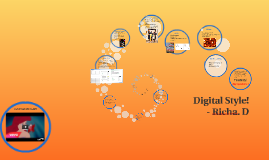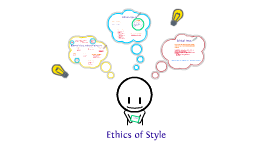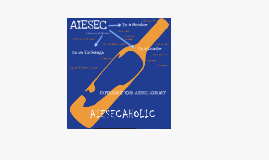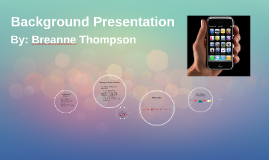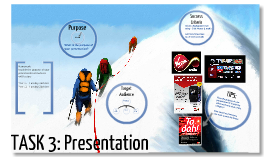Style Presentation
Transcript: Responsibilities and Rationalization Utilize Language The Declaration of Independence (Thomas Jefferson) Used syllogism (major premise, minor premise, conclusion) Used logos: philosophical justification, facts, and ended in a passive/impersonal voice (created a philosophical basis for revolution in general rather than just in the colonists' situation) Use pathos: explained the injustices and how the colonists made an effort Used declarative syntax: targeted everything at the king ("He ___") Used unifying diction: united the colonists by calling them "we" Used passive/impersonal voice when speaking of colonists...made it seem like they were coerced by a higher power Used active voice when speaking of King George...made it seem like he was the target and acting freely Used religious allusions: made it seem that the colonists were coerced by God Ethical Issue Can we trust a writer who tries to convince us through rhetoric/their prose style instead of through only logical arguments? “Style is the ultimate morality of mind” -Alfred North Whitehead Key: Diction (tone/words) Imagery Details (facts) Language (overall tone) Syntax (form) Sentence subject Active vs. passive voice Important Devices: Ethos, Pathos, Logos Allusions Anaphora & Epistrophe Choose Your Words Carefully AP Literature: The Ethics of Style writer to make language understandable reader to make an effort to understand good bad clarity: value that is man-created Rationalization would never intentionally hurt customers passive mistakes have been made A scientific explanation or history-related text where there was no way of understanding it Good writing is... clear, concise, candid + achieves an end while maintaining integrity Experience what readers undergo as they read Ethical choice= why write clearly when there is so much bad writing? Graceful writers don’t go unrewarded Satisfaction Sears Sales Example Subjects imply different scenarios Make word choices that aren't inevitable, but seem natural Ethics of Style break in the peace writer's duty Intended Misdirection Salutary Complexity/Subversive Clarity Bailey Kenny & Becca Smith "There is no artifice as good and desirable as simplicity" ~St. Francis de Sales Make logical arguments, but cleverly manipulate language to support logic "Whatever can be thought can be thought clearly; whatever can be written can be written clearly" ~Ludwig Wittgenstein pg 199 Use Rhetorical Devices & Tone "Write to others as you would have others write to you" Necessary Complexity Unintended Obscurity on purpose stylistic manipulation systematic change of subject idea of being "candid" choose subjects and verbs carefully For Example... Logic + Rhetorical Devices= Success pg 192 Two Main Responsibilities: lack of clarity and ability to understand an accident innocent ignorance The Golden Rule







